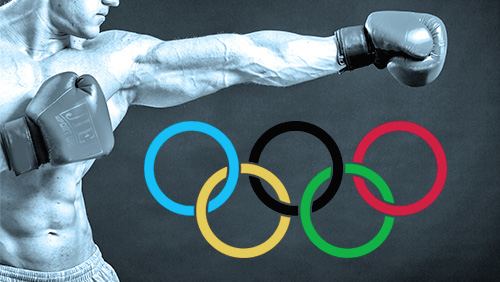Professional boxers will be able to compete against their amateur brethren at the Rio Olympics after a rule change submitted by the Amateur International Boxing Association was approved at a meeting in Lausanne.
Professional boxers will have the opportunity to compete for an Olympic gold medal after 95% of people during a meeting of Olympic minds voted for the Amateur International Boxing Association’s (AIBA) requested merger of the two divisions.
 It’s a decision that hasn’t gone down too well in the professional boxing community. Former world champion Mike Tyson-branded the decision as ‘ridiculous’ and ‘foolish.’ Oscar De La Hoya, who won the top Olympic prize in 1992 calling it his ‘greatest prize’ of his career, said he would never have done so had pros competed in the event. Former world champion Carl Frampton told BBC Sport that the two divisions were different sports stating it would be like ‘badminton versus tennis’.
It’s a decision that hasn’t gone down too well in the professional boxing community. Former world champion Mike Tyson-branded the decision as ‘ridiculous’ and ‘foolish.’ Oscar De La Hoya, who won the top Olympic prize in 1992 calling it his ‘greatest prize’ of his career, said he would never have done so had pros competed in the event. Former world champion Carl Frampton told BBC Sport that the two divisions were different sports stating it would be like ‘badminton versus tennis’.
Not every pro thought it was a bad idea. Former Olympic silver medallist, Amir Khan, told the press from an event in Karachi that he would love to represent Pakistan in a bid to turn his silver medal into gold. And former world champion and partypoker Ambassador Carl Froch believes the playing field will be a level one: ‘I’ve trained and sparred with many top amateurs: honestly they hold their own, all of them.’ Said Froch.
If Khan wants to get involved, he had better be quick. The Rio Olympics begins in only 10-weeks time and the only way pro boxers can get there is via a qualifying tournament held in Venezuela early next month. The caveat being the national team must select the pro to compete for a spot. Most spots in Olympic boxing teams are already filled, with only two positions left in the Great Britain team for example.
The International Olympics Committee (IOC) allowed professional athletes to compete in the Olympic games in 1984. In 2012, headgear was removed from senior men’s Olympic action after a study on concussion revealed boxers were more likely to suffer from the malady when wearing headgear. Traditional point scoring turned up in Olympic bouts in the 2000s.
The only difference remains the length of fights. Amateur boxers train for and compete in three three-minute rounds, whereas professionals compete in 12 three minute rounds.
It’s a catch-22 situation for a pro fighter. An Olympic medal revives hope for ailing pros, but Mike Tyson believes that amateurs will beat some of the top pros, and that could prove disastrous for promotion and marketing purposes. It’s with this in mind that the money will overrule hearts, and we won’t see a significant impact in Rio in my opinion.
Aiba president, and the key mover behind this decision, Ching-Kuo Wu, told the press that the ruling was a big part of his ‘master plan’ and a ‘big step forward’ towards it.
“In my belief, every athlete should have the right to go to the Olympic Games.” Said Wu.
World Boxing Council (WBC) officials didn’t agree, stating that the move was the ‘shameful lowest stage,’ of Olympic boxing.
Rumour has it that former world champion Ricky ‘The Hitman’ Hatton is well up for the challenge and is training for the most unlikeliest of comebacks at the Olympics in Rio starting with a new and improved diet.
Having a Benidorm breaky.I’ve never walked away from a challenge & this is one.But there is only one Ricky Fatton. pic.twitter.com/ezb2jvz39N
— Ricky Hatton MBE (@HitmanHatton) June 1, 2016